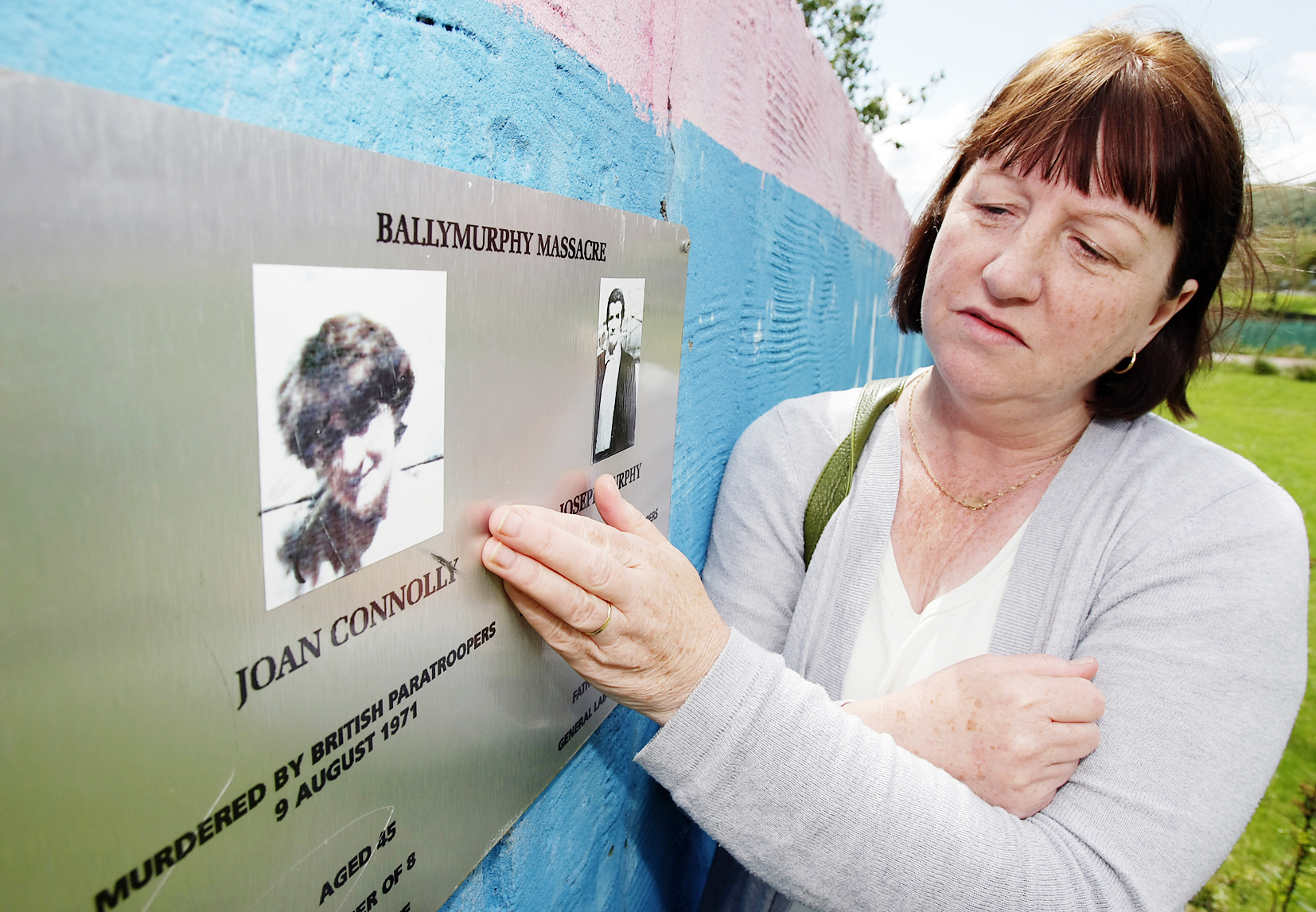The daughter of a woman killed in the Ballymurphy Massacre has spoken of her fresh heartache with news her mother lay alone slowly dying for up to six hours when medical treatment could have saved her life.
Mother of eight children Joan Connolly was shot by the British army on August 9, 1971 after leaving her home to go looking for her two daughters. She was one of 11 innocent civilians killed by the Parachute Regiment over the bloody three-day period.
Reports from the time indicate she was shot at around 9pm but not picked up and taken to hospital until between 2am and 3am the next day.
This week, her family released an independent review into the killing by top retired A&E consultant Laurence Rocke.
The experienced emergency doctor said he believes that as Joan Connolly’s body lay on the ground, she may have been clinging on to life and survived had she received medical attention in the Royal Hospital, just minutes away.
The soldiers involved in the killing said in depositions made a year after her death that they believed Mrs Connolly was already dead, though they did not check to see if the mother had any signs of life.
Dr Rocke said although Mrs Connolly eventually bled to death from her gunshot wounds, they would not have killed her immediately and that even an action as simple as pressure over the wounds could have stemmed the blood enough to save her.
Joan Connolly’s daughter, Briege Voyle, said when she received the doctor’s report into the killing she was so shocked she could not even tell anyone his findings for some time.
“When I found out what was in the report I was so gobsmacked I couldn’t even tell anyone for weeks, it was just too much to take in,” she said.
“It’s bad enough knowing all these years what happened to my mummy, but to find out she lay there like a dog, all on her own with no one there and dying is just too much.
“My mummy would have been 87 now, I know she might have died of natural causes but not knowing, it’s the not knowing, that makes it so hard. She didn’t see us grow up, she missed it all. Now knowing she would have lived is heartbreaking.”
Briege, along with other families who lost loved ones in the massacre, has long campaigned for the British government to establish an independent panel into the killings. She explained the impact on the family – the youngest child was just three-years-old – caused by the loss of their mother. The family only discovered Joan Connolly was dead after they waited all night for her return home from looking for her daughters and then rang the morgue and gave her description.
“After she died we were sent to a refugee camp in the south and then we all only came home in dribs and drabs. Not all together,” said Briege.
“My daddy was in an awful depression and being young we couldn’t understand why he couldn’t look after us the way mummy could. He had to give up work to look after us and then died 11 years later of cancer.
“All we were thinking at the time when he died was my mummy should be here with us for this. Knowing now what happened that night is really unbearable.”
The families are calling once again on the British government to accept their proposal to establish an independent panel to examine the Ballymurphy Massacre.
Joan left to die alone in the dark






